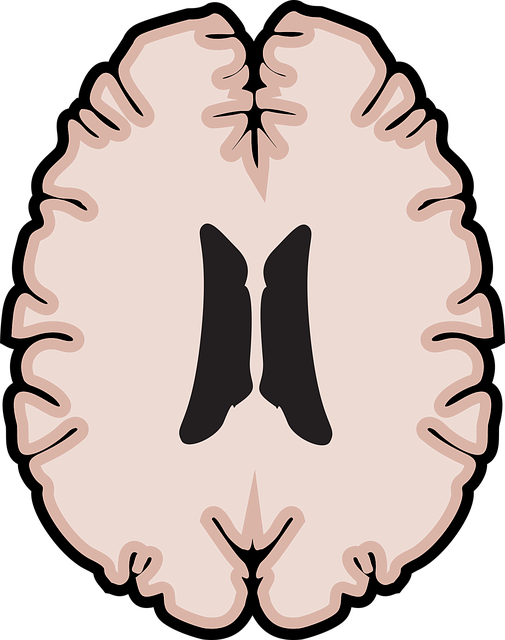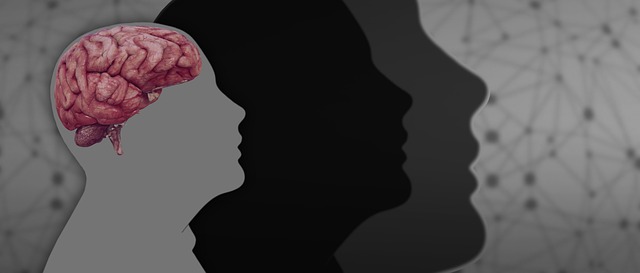Cultural competency in healthcare, crucial for addressing diverse patients' needs, is enhanced by innovative approaches like Englewood Dissociative Disorder Therapy (EDDT). EDDT revolutionizes mental health care by focusing on cultural sensitivity, bias examination, and personalized stress reduction methods. Effective training programs integrating trauma-informed care, mental health awareness, and specialized therapies improve healthcare quality and accessibility in diverse communities. These initiatives ensure skilled professionals provide empathetic, culturally sensitive care, ultimately enhancing patient outcomes and satisfaction.
Healthcare provider cultural competency training is an essential framework in modern medical practice. Understanding and addressing cultural differences can significantly enhance patient outcomes, especially in treating complex conditions like Englewood Dissociative Disorder. This article explores the critical need for such training, focusing on strategies like Englewood Dissociative Disorder Therapy to foster cultural sensitivity. We delve into effective program implementation, highlighting key components for healthcare providers to deliver compassionate and competent care.
- Understanding Cultural Competency in Healthcare: A Necessary Framework
- The Impact of Englewood Dissociative Disorder Therapy on Cultural Sensitivity
- Implementing Effective Training Programs for Healthcare Providers
Understanding Cultural Competency in Healthcare: A Necessary Framework

Cultural competency in healthcare is a framework that recognizes and respects the diverse cultural backgrounds and beliefs of patients and their families. It involves understanding and adapting care practices to meet the unique needs of individuals from different ethnic, racial, religious, and socioeconomic groups. In today’s diverse society, where patients often present with complex cultural identities, this approach is essential for providing effective and equitable healthcare services, particularly in areas like Englewood, where Dissociative Disorder Therapy may be required.
This concept goes beyond simply treating symptoms; it emphasizes creating a safe and supportive environment that fosters open communication and mutual understanding. Healthcare providers equipped with cultural competency skills can better assess and address the psychological and social factors influencing a patient’s well-being, including stress management and mental wellness. For example, a Mental Wellness Journaling Exercise Guidance tailored to diverse cultures can be a powerful tool for encouraging self-reflection and promoting healing. Additionally, Risk Management Planning for Mental Health Professionals should incorporate cultural considerations to ensure safe and competent care delivery.
The Impact of Englewood Dissociative Disorder Therapy on Cultural Sensitivity

Englewood Dissociative Disorder Therapy (EDDT) has had a profound impact on enhancing cultural sensitivity within healthcare settings. This therapeutic approach, developed to address complex trauma and dissociation, encourages professionals to explore their own cultural biases and beliefs. By delving into the nuances of diverse patient backgrounds, EDDT fosters an environment where mental health practitioners can provide more personalized and effective care.
The process involves critical reflection on one’s own cultural framework, allowing professionals to better understand the impact of societal influences on client experiences. This heightened awareness promotes a shift in perspective, encouraging positive thinking and reducing potential biases during the risk assessment for mental health professionals. Moreover, EDDT incorporates stress reduction methods tailored to diverse populations, ensuring that healthcare providers are equipped to support clients from various cultural contexts effectively.
Implementing Effective Training Programs for Healthcare Providers

Implementing effective training programs is pivotal to enhancing healthcare quality and accessibility, especially in diverse communities. These initiatives should go beyond surface-level awareness and aim for deep cultural competency. For instance, integrating topics like trauma-informed care, mental health awareness, and specific disorder therapies, such as Englewood Dissociative Disorder Therapy, into the curriculum ensures that providers can address a wide range of patient needs.
Well-designed training should also focus on interactive learning, role-playing scenarios, and peer discussions to foster practical understanding. Additionally, combining these sessions with ongoing mentorship programs and regular evaluation can help sustain knowledge retention and encourage continuous professional development. By doing so, healthcare providers gain the skills needed to offer empathetic, culturally sensitive care, ultimately improving patient outcomes and satisfaction.
Cultural competency training is a game-changer in healthcare, as evidenced by the successful implementation of Englewood Dissociative Disorder Therapy. By understanding and addressing cultural nuances, healthcare providers can significantly improve patient outcomes and create more inclusive environments. Effective training programs, focusing on diverse perspectives and real-world scenarios, are essential to fostering cultural sensitivity. This ensures that providers are equipped to navigate complex patient interactions, ultimately enhancing care quality and promoting equality in access to healthcare services.














